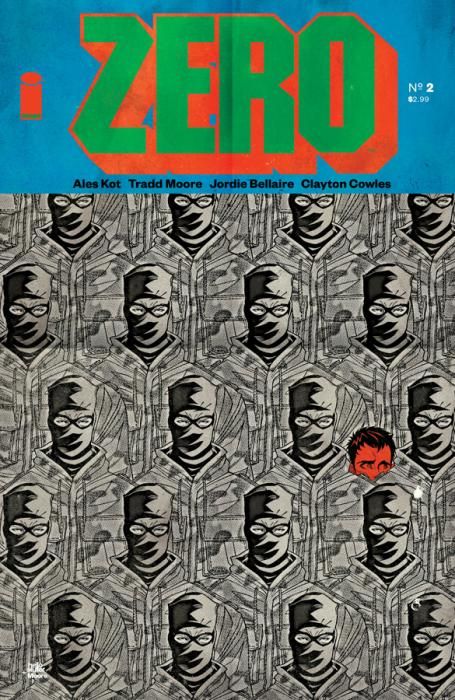"Zero" #2, like issue #1, is a standalone story that looks at the formative years of protagonist Edward Zero, a soldier who has trained and works for a government operation known so far only as The Agency. Writer Ales Kot takes Zero, still a child, on his first mission as an anti-IRA assassin, and Zero's world is a stark, cold and emotionless one as he's raised to think of people not as human beings, but only as targets. Artist Tradd Moore makes it a barren and ugly world, with its brutal training camps and characters with exaggerated and twisted faces, but for all its ugliness, "Zero" #2 is an intense exploration of a troubled boy who grows up to be a trained killer.
Both Kot and Moore are unrelenting in the book's intensity, in fact. Zero as a boy is seemingly exposed to nothing even remotely pleasant; he's told that promises are nothing but lies and that life is only a state of perpetual war. He believes he'll be dead before adulthood and finds comfort in solitude while confined to a tiny box during his training. He has to kill for food and is told to form no emotional bonds. It's as though Kot throws everything he can think of at his character to explain his origins as a psychopathic assassin. It works, but it's tough to read a story where a boy endures so much hardship. Even during the only moment with a passing similarity to a typical childhood moment, where he spends time literally hanging out with the closest thing he has to a friend, the subject is his own mortality. There's little in Moore's technique to soften the blow, either; his lines are crisp and sharp, as though to punctuate the notion that there is nothing soft or smooth-edged in Zero's world.
Ironically, Zero's first career target is shown in a much softer light, as a family man who enjoys time with his wife and children in his quiet suburban home. In fact, quite a bit of time is spent in this locale, as though to balance the unloving world Zero is raised in and exemplify his target as everything that Zero is not: human, loving, and happy. The point is made, but almost to the point of excess; the contrast between the two men and the two environments is clear, and the page time spent hammering this home dramatically slows the latter part of the story. Another point the second half shows, though, is that Zero isn't necessarily the coldhearted killer he's been trained to be, at least yet, all the while showing that The Agency is every bit as brutal as has been shown.
"Zero" #2 is a bit uneven, but it's an unfiltered and unapologetic look at the origin of a boy who becomes the hardened soldier seen in the prior issue. Its nature makes it emotionally difficult to read, but that's a testament to Kot's skill at evoking such sympathy for the character as a boy, and Kot succeeds in stoking interest in future issues that presumably will fill the gaps in the character's life.

